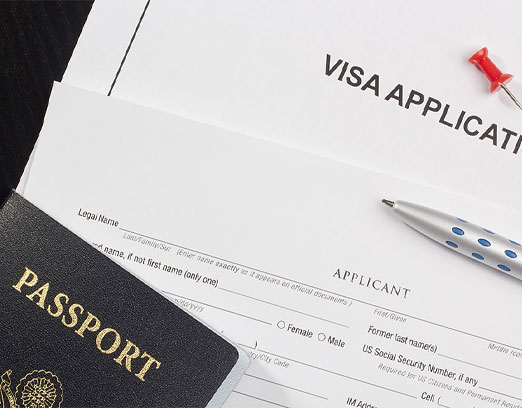
August 15, 2020
New Guidance on the Entry Ban for H-1B & L-1 Workers
The U.S. State Department issued new guidance (on August 12) regarding President Trump’s Proclamation that bans the entry of certain non-immigrant visa holders including H-1B and L-1 employees. The Proclamation does not apply to applicants who were in the U.S. on the day that it took effect, i.e., June 24, 2020, or who had a valid visa in the specified classifications (including H-1B and L-1) and plan to enter the United States on that visa.
Per the new guidance, foreign nationals may obtain an H-1B or L-1 visa if they are traveling to the U.S. to resume ongoing employment in the United States in the same position with the same employer and visa classification.
Additionally, an H-1B applicant whose travel is necessary to facilitate the immediate and continued economic recovery of the U.S. would fall under an exception (and not be subject to the entry ban) if at least two of the following five criteria are met:
- The employer has a continued need for the H-1B applicant’s services in the U.S. provided that the employer has a labor condition application (LCA) approved by the U.S. Department of Labor (DOL) during or after July 2020. For LCAs approved by DOL before July 2020, this criterion is only met if the consular officer is able to determine the continuing need of petitioned workers with the U.S. employer from the visa application. Regardless of when the LCA was approved, if an applicant is currently performing or is able to perform the essential functions of the position for the prospective employer remotely from outside the U.S., then this criterion will not be met.
- The employer is meeting a critical infrastructure need and the H-1B applicant’s services in the U.S. will provide significant and unique contributions to the employer. Critical infrastructure sectors are chemical, communications, dams, defense industrial base, emergency services, energy, financial services, food and agriculture, government facilities, healthcare and public health, information technology, nuclear reactors, transportation and water systems. To meet this criterion, the applicant must hold a senior level placement within the petitioning company or have job duties reflecting performance of functions that are both unique and vital to the management and success of the overall business enterprise; OR he should have job duties and specialized qualifications that indicate that he’ll provide significant and unique contributions to the petitioning company.
- The wage rate paid to the H-1B applicant meaningfully exceeds the prevailing wage rate by at least 15 percent.
- The H-1B applicant’s education, training and/or experience demonstrate unusual expertise in the specialty occupation in which he will be employed. For example, an applicant with a doctorate or professional degree, or many years of relevant work experience, may have such advanced expertise in the relevant occupation as to make it more likely that he or she will perform critically important work for the petitioning employer.
- Denial of the H-1B visa will cause financial hardship to the U.S. employer, for example the employer’s inability to meet financial or contractual obligations; the employer’s inability to continue its business; or a delay or other impediment to the employer’s ability to return to its pre-COVID-19 level of operations.
Exceptions for L-1A and L-1B Visa Applicants
An L-1A applicant will not be subject to the Proclamation’s entry ban if he is seeking to resume ongoing employment in the U.S. in the same position with the same employer and visa classification. Also, an L-1A applicant (other than one seeking to establish a new office) who is a senior level executive or manager filling a critical business need of an employer meeting a critical infrastructure need, will not be subject to the ban if at least two these three conditions are met:
- The applicant will be a senior-level executive or manager;
- Has spent multiple years with the company overseas, indicating a substantial knowledge and expertise within the organization that can only be replicated by a new employee within the company following extensive training that would cause the employer financial hardship; or
- Will fill a critical business need for a company meeting a critical infrastructure need.
L-1A applicants seeking to establish a new office in the United States likely do NOT fall into this category, unless two of the three criteria are met AND the new office will employ, directly or indirectly, five or more U.S. workers.
An L-1B visa applicant will not be subject to the Proclamation’s ban if he is seeking to resume ongoing employment in the United States in the same position with the same employer and visa classification. Also, the L-1B applicant will fall under an exception to the ban if all criteria below are met:
- The applicant’s proposed job duties and specialized knowledge indicate that the applicant will provide “significant and unique” contributions to the petitioning company;
- The applicant’s specialized knowledge is specifically related to a critical infrastructure need; and
- The applicant has spent multiple years with the company overseas, indicating a substantial knowledge and expertise within the organization that can only be replicated by a new employee within the company following extensive training that could cause the employer financial hardship.
An applicant who may be eligible for any of the above exceptions under the Proclamation’s ban can make a visa appointment at the relevant U.S. consulate using that specific consulate’s procedures for requesting an emergency appointment. The applicant should explain why he believes he qualifies for the exception. At the time of the interview appointment, the consular officer will determine whether the applicant is eligible for the visa pursuant to the exception.
